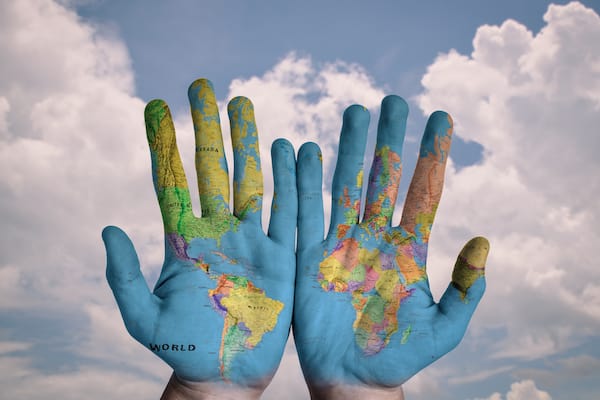The world as we know it was born only 3 decades ago. Not even the boldest minds in “futurology” would have imagined the speed, reach and breakthroughs that technology has created since computers became 70% of our life. In addition, never in the story of humanity has globalization impacted almost every person on the planet.
These changes are happening at great speed. Being aware, and most importantly, being prepared for these changes, is crucial for businesses and individuals. As you read these paragraphs you will realize that the world around you is changing on a daily basis, and, that it is very hard to keep up.
Benefits of Globalization
Benefits of globalization are too many to summarize in this article. We have selected the most important and relevant.
Communication

Undoubtedly, communication has to be on the top of our list. The Internet of Things (IoT) has changed every single task of our lives. From grocery shopping to commercial transactions and everything in between. Being able to establish live videoconferences 13000 miles away from one another, has made traveling and face to face meetings, a thing of the past.
Some parts of our daily lives such as banking, customer service, and even education, are provided through the internet making our life somewhat easier.
Access to Markets and Information
A businessperson, or entrepreneur, might have an idea that will dramatically change lives or have success one ocean away. The same principle applies to investment, crowdfunding, think tanking, and ecommerce.
Although transportation has not changed in 60 years, prices, times and logistics have. Selling products to the entire world is now available at lower costs. Being visible to worldwide potential customers or contacts makes that every company can go global by investing enough time and money on their website.
Remote Work

People who work part-time or full-time from their homes have increased dramatically over the past decade. For instance, work-from-home employees can now work collaboratively using an online video editor or audio joiner. Companies can now also use AI-driven tools such as an AI avatar to assist them in documentation and presentations. This tendency will grow exponentially over the following years. This means lower expenses for both employer and employee, little to no physical office space, and no utility bills.
This also means no weekly schedules, less domestic taxes and labor obligations, and of course multilingual and multicultural staff. In exchange, workers have time to spend with their families, as the 9 to 5 job is being replaced with tasks and projects. Most importantly, working remotely has opened new opportunities to many around the globe.
Living Standards and Economic Power
Several International organizations agree to say that the number of people below the poverty lines is decreasing. Countries are growing in financial terms. In addition, regions such as Latin America and Southern Asia are blooming. This provides numerous opportunities for products, services, and investments in every industry.
These phenomena have also provided the opportunity to live abroad for many people, who can experience similar conditions in more countries than some decades ago. The improvement of these conditions has also changed the levels of safety, reducing homicides and burglaries on dozens of countries.
Challenges of Globalization
The new questions to be answered in the following years address primarily to the following aspects:
Job Displacement

As seen every day, the technological revolution has brought many problems to the current labor market in terms of industry migration.
Wages greatly differ from country to country. A monthly minimum wage in the United States is about 6 months of the minimum wage in Bolivia, to name an example. Both workers are able to perform the same tasks, so companies, as it seems obvious, decide to move the plant to a country were staffing costs are less.
This increases the unemployment rates in the country, and, as it is a global tendency, there are fewer jobs in that same area.
Job Disappearance
Dozens of trusted authors declare that there are dozens of positions which are now filled entirely or partially by machines. The automotive industry, customer service, among others, need fewer workers every day. As this is a global phenomenon, computer devices and robots are less expensive and will take over thousands of positions in the near future.
Both workers and governments need to face this problem immediately. Education, training and job placement can greatly affect the current scenario.
Uncontrolled Information

Information and the fact that it can be so easily manipulated is a great danger of our current reality. Most people rely on the information found online and this has caused numerous problems worldwide. From fake news to self-medication, people trust the internet to be the source of TRUE and ACCURATE information on almost anything.
In addition, as social media is part of our lives, rumors and fake news can be widely spread causing massive evacuations or changing the way we live. Also, as it provides an anonymous veil for its users, allows people to freely insult, mistreat or bully almost without consequences.
Loss of Customs and Traditions
As there is now a sense of a global culture, this culture often forgets about the richness of domestic traditions. Music, to name an example, has been globalized to the point that a hit song is on top of the hit list in over one hundred countries. As this is not a problem, it does bring a question on the domestic musicians and rhythms.
On another example, National clothing industries have been suffering from this trend, as people rather consume foreign fashion and products instead of domestic brands.
As the difference between cultures is what brings us together as humans, vocabulary, accent, food, and music shall be protected at all costs. Maintaining authenticity as members of a country, community or sharing the same taste in music is fundamental to remember who we are. Patriotism and national values are also lost every single day.
Conclusion
Making the best of the amazing times we live in, is fundamental to improve our lives. By using the tools provided in terms of freedom of speech, online education, and market access, everyone can change, evolve and improve, while preserving the values that make them humans.
A globalized world, without frontiers in terms of culture, products, and training, is now a reality. Using these tools to your benefit depends entirely on you.
How useful was this post?
Click on a star to rate it!
Average rating 4.8 / 5. Vote count: 218
No votes so far! Be the first to rate this post.





































